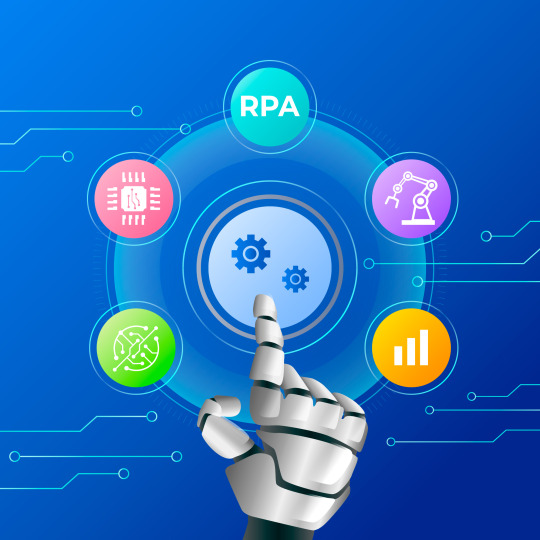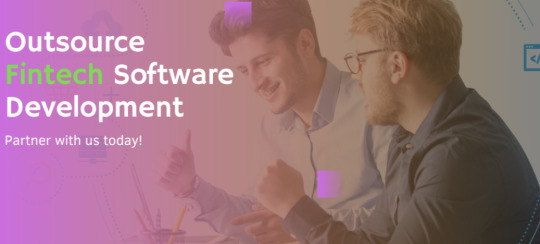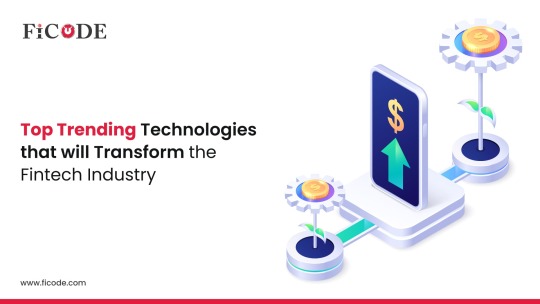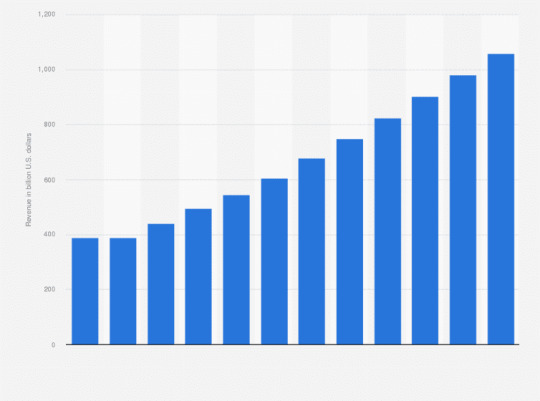#robotics technology company
Explore tagged Tumblr posts
Text
Master's Degree in Robotics in USA
Your Gateway to Success with Fortune Robotics

Are you ready to take your career to the next level in the exciting field of robotics? Look no further than the Fortune Robotics Masters Program in Robotics in the USA. Our comprehensive and modern curriculum is designed to equip you with the knowledge and skills you need to succeed in this fast-growing industry.
Why choose Fortune Robotics?
Industry Curriculum: Our program is carefully crafted to give you a deep understanding of robotics, including artificial intelligence, machine learning, computer vision and more. You'll learn from industry experts and gain hands-on experience with cutting-edge technology that will prepare you for success in the real world.
State-of-the-art facilities: At Fortune Robotics, you have access to state-of-the-art facilities and resources, including advanced robotics laboratories, research centers and collaboration opportunities with leading industries. companies and organizations.
Faculty: Faculty are leaders in the field of robotics who bring a wealth of knowledge and experience to the classroom. You will have the opportunity to learn from the best and gain valuable insight into the latest developments and trends in robotics.
Career Opportunities: Upon graduation, you will be well equipped to pursue a variety of careers in robotics, including R&D, manufacturing, healthcare, autonomous vehicles and more. Our program also offers career support and networking opportunities to help you make meaningful connections in the industry.
Flexibility: We understand that many of our students have other commitments, which is why we offer flexible program options, including part-time and online study options that allow you to complete your Master in Robotics while balancing your time other duties.
Admission Requirements
To be accepted into the Robotics Master's program, an applicant must have a bachelor's degree in a related field, a strong passion for robotics, and a desire to make an impact in this dynamic field. International students must meet additional requirements, such as English language tests.
Apply Now
Don't miss your chance to join the next generation of robotics innovators and leaders. Apply today to Fortune Robotics' Master of Robotics program and take the first step toward an exciting and rewarding career in robotics.
For More Details Visit Our Website - https://fortunerobotics.com/
Mail id - [email protected]
Contact Us - +1 (347) 728-4015
#education#ai robots#robotics technology company#robotics#ai course in engineering#best ai development company in india
0 notes
Text



do you guys remember that one person i posted a while back. they gained some friends now
pink haired guy is owned by my friend @ratwave404 he doesn't do much on tumblr but still say hi to him :3
more doodles under the cut (one doodle contains eyestrain beware)








#cacterart#cacterverse#their universe is called world wide friends (wwf for short) btw#uhhh short summaries of both of their lores:#zeta - android made by a company who's friends with the company who made alpha in an attempt to force alpha back into their body.#eventually they become friends though. and maybe something more#beta - homemade android made by a fan of alpha made in an attempt to pursue them for an interview or whatnot#also becomes good friends#i'm currently working on a secret project with alpha that i plan on doing with zeta as well but it's like... SUPER early stages#anyway:)) yeah.#can you guys tell i like robots and the internet and everything technological#world-wide friends
5 notes
·
View notes
Text
#importance of critical thinking and innovation skills#21st century is critical thinking.#innovative ideas#top companies in educational technology#end-to-end solutions to K-12 students#robotics labs and AI/IoT labs#importance of 21st-century skills#Generation of Critical Thinkers and Innovators
2 notes
·
View notes
Text
Unlocking Efficiency and Innovation: The Role of Robotic Process Automation (RPA)

In today's fast-paced and competitive business environment, organizations are constantly seeking ways to improve efficiency, reduce costs, and increase productivity. Robotic Process Automation (RPA) has emerged as a powerful tool that can help businesses achieve these objectives.
What is Robotic Process Automation (RPA)?
Robotic Process Automation (RPA) is a technology that allows businesses to automate repetitive, rule-based tasks. It uses software robots, also known as "bots," to mimic human actions and interact with digital systems. These bots can log into applications, navigate through screens, input data, and complete tasks just like humans would.
The Role of RPA in Business:
RPA can be used to automate a wide range of tasks across various industries and departments. Here are some examples:
Finance and Accounting: Automating tasks such as accounts payable and receivable, invoice processing, and financial reporting.
Customer Service: Automating tasks such as answering FAQs, resolving customer inquiries, and processing orders.
Human Resources: Automating tasks such as onboarding new employees, processing payroll, and managing benefits.
IT: Automating tasks such as provisioning accounts, managing user access, and deploying software updates.
Impact of RPA on Businesses:
Implementing RPA can offer numerous benefits to businesses, including:
Increased efficiency and productivity: RPA can automate time-consuming and tedious tasks, freeing up employees to focus on more strategic and value-added activities.
Reduced costs: RPA can help businesses save money on labor costs, as well as reduce errors and compliance risks.
Improved accuracy and compliance: RPA bots are programmed to follow specific rules and procedures, which can help to improve accuracy and compliance with regulations.
Enhanced process visibility and control: RPA provides businesses with a clear view of their processes, which can help them identify and address bottlenecks.
Improved customer satisfaction: RPA can help businesses improve customer satisfaction by automating tasks such as order processing and customer service interactions.
RPA Services:
Implementing RPA successfully requires a partner with expertise in the technology and a deep understanding of business processes. A comprehensive RPA solution should include the following services:
Document AS-IS Process: This involves mapping out the existing process to identify areas for automation.
Design & Development of Bots, workflows, and forms for process automation: This includes designing and developing the software robots that will automate the tasks.
Bot license (We will use the appropriate underlying technology): This provides access to the software robots and the underlying technology platform.
Infrastructure: This includes setting up the necessary infrastructure to support the Robotic Process Automation (RPA) solution.
Production Deployment of the Bots: This involves deploying the bots to production and monitoring their performance.
RPA support: This includes ongoing support for the RPA solution, such as troubleshooting and maintenance.
Test & Deploy bots to production: This involves testing the bots in a production environment and making any necessary adjustments before they are deployed to full production.
Configuration data changes: This involves making changes to the configuration data of the bots as needed.
Password updates: This involves updating the passwords of the bots as needed.
Errors in executing the Bots: This involves resolving errors that occur during the execution of the bots.
Determining the “root cause” of a recurring issue or incident & recommendations: This involves identifying the root cause of a recurring issue or incident and recommending solutions to prevent it from happening again.
Infrastructure/application related issues: This involves resolving issues with the infrastructure or applications that the bots are interacting with.
Conclusion:
RPA is a powerful technology that can have a significant impact on businesses of all sizes. By automating repetitive tasks, RPA can help businesses improve efficiency, reduce costs, and increase productivity. However, it is important to choose a reputable Robotic Process Automation (RPA) companies with the expertise and experience to help you implement a successful RPA solution.
Ready to embrace the power of RPA?
Contact us today to learn more about how RPA can help your business achieve its goals.
#robotic process automation#robotic process automation rpa#rpa automation#robotic process automation software#rpa software#robotic process automation companies#robotic process automation technology#robotic process automation in healthcare#robotic process automation in banking#rpa solution#robotic process automation for finance#process automation solution#robotic process automation services#robotic process automation for insurance#rpa system#what is rpa automation#robotic process automation solution#robotic process automation benefits#robotic process automation consulting#robotic process automation consultant#rpa service provider#rpa consulting services
2 notes
·
View notes
Text
Robotics company in Dubai
Ambitious projects like the UAE's Artificial Intelligence Strategy 2031 and the Dubai 10X program demonstrate Dubai's dedication to technological growth. By putting Dubai at the forefront of AI and robotics, these projects want to create an atmosphere that will support the growth of robotics companies. The city is a great place for robotics innovation because of its advantageous location, business-friendly regulations, and availability of talented workers.
Key Robotic Companies in Dubai
Optimus Robo
One of the top brands in Dubai's robotics industry is Optimus Robo, which specializes in renting and selling robots. The business offers modern robots for a range of uses, such as retail, healthcare, and hospitality. Their products, like telepresence and receiving robots, are made to increase operational effectiveness and customer connection.
Applications of Robotics in Dubai
Healthcare: Robots are being used in hospitals to perform jobs including remote surgery, decontamination, and patient care. Robotic technologies are being used in Dubai's healthcare industry to improve accuracy and productivity.
Hospitality: In order to provide seamless client experiences, service robots—such as concierges and receptionists—are increasingly being used in hotels and restaurants.
Logistics and Warehousing: By enhancing order fulfillment, transportation, and inventory handling, autonomous robots are transforming supply chain management.
Education: In order to educate students for future tech-driven occupations, schools in Dubai are implementing robotics courses, making robots a significant part of the educational landscape.
Why Choose Dubai for Robotics?
Supportive Ecosystem: To encourage the expansion of robotic startups, Dubai provides grants, subsidies, and mentorship programs.
Strategic Alliances: Cooperation across public and private organizations, as well as universities, speeds up technical development.
Talent Access: Dubai draws highly qualified workers from all over the world, guaranteeing a consistent supply of robotics and artificial intelligence specialists.
Dubai's robotic businesses are leading the way in technological change, transforming sectors and spurring creativity. Dubai is in a strong position to lead the world in robotics and artificial intelligence because of its strategic vision and encouraging ecology. Whether you are an enthusiast, investor, or business owner, Dubai's robotic revolution presents fascinating chances to contribute to an innovative future.
To know more, click here.
0 notes
Text
generally idgaf about chatgpt or ai in general. i think ppl fearmongering about it are on the same level as like, people who think robotics is evil because boston dynamics exists. i do also think LLMs are mostly useless in their current form and the only place they should really occupy in creative endeavors is being used to expedite the process of finding inspiration, which is really just a faster way of googling what you want to draw/write/produce and looking at examples manually. it sucks that it's marketed as the future of writing or whatever so that ppl who research it can get funding, it sucks that some people who work on this technology genuinely believe that, but the technology itself won't stop existing and shouldn't stop existing. genuinely baffled at how quickly people will decide some random extremely broad category of thing is the devil incarnate based on a telephone game of misinformation and also like, science fiction.
#tldr SHUT UP! i want to friends with a robot someday#and also like im not an expert but i have worked at a robotics company before for their educational programs#and like 90% of ppl talking about this r genuinely clueless lol#i won't say the name of the company bc i think it only exists in my town and thus would dox me#but they don't produce any kind of military technology afaik. it's mostly focused on disaster relief
0 notes
Text

The Future of Cyborgs and Androids: Pioneering Human-Machine Integration
Pioneering Human-Machine Integration
The line between humans and machines is becoming increasingly blurred as advancements in robotics, artificial intelligence (AI), and biotechnology push the boundaries of what is possible. Cyborgs—humans enhanced with mechanical or electronic components—and androids—fully robotic beings designed to mimic humans—represent two of the most exciting developments in technology. These innovations hold the potential to revolutionize medicine, industry, and even daily life.
Cyborgs: Enhancing Human Abilities
Cyborgs are no longer a concept limited to science fiction. Today, real-world examples of human-machine integration are already improving the lives of people with disabilities and enhancing human capabilities in unprecedented ways.
Bionic Limbs
One of the most well-known applications of cyborg technology is in the development of bionic limbs. Prosthetics have come a long way, and now, advanced robotic limbs are capable of responding to neural signals from the brain, allowing users to control them with their thoughts. These bionic limbs offer a level of dexterity and functionality that was previously unimaginable.
Click here for the next artikel .....
#best companies#technology#cyborg#robots#ai#iot#innovation#cybersecurity#androids#cybotron#design#business
0 notes
Text
#Healthcare mobile app development#Custom App Development#AI In Healthcare#Artificial Intelligence technologies#AI in healthcare is reduced healthcare costs#Surgical robots#Use Cases: AI In Healthcare#Benefits Of AI In Healthcare#mobile apps development agency#healthcare app development company#healthcare mobile app development#healthcare app developers
0 notes
Text
Unlocking the Potential: Arduino Programming for Beginners

Arduino programming opens up a world of endless possibilities for beginners looking to dive into the exciting realm of electronics and robotics. Whether you're an aspiring engineer, hobbyist, or student, learning Arduino programming can be both rewarding and empowering. In this beginner's guide, we'll explore the fundamentals of Arduino programming, its applications, and how you can get started on your journey towards building your own innovative projects.
What is Arduino?
Arduino is an open-source electronics platform that provides a user-friendly interface for building interactive electronic projects. At its core, Arduino consists of a microcontroller board and a development environment for writing and uploading code to the board. With Arduino, you can create anything from simple LED blinkers to complex robotic systems, making it an ideal platform for beginners and experienced makers alike.
Understanding Arduino Programming:
At the heart of Arduino programming is the Arduino IDE (Integrated Development Environment), a software tool used to write, compile, and upload code to the Arduino board. The language used for Arduino programming is based on C/C++, but it's simplified and tailored for ease of use, making it accessible even to those with limited programming experience.
Getting Started:
Setting up the Arduino IDE: The first step in arduino programming for beginners is to download and install the Arduino IDE from the official website (https://www.arduino.cc/en/Main/Software). Once installed, you'll need to select the appropriate board and port from the Tools menu to establish a connection between your computer and the Arduino board.
Writing Your First Sketch: In Arduino programming, a sketch refers to the code that runs on the Arduino board. A simple "Hello World" example for Arduino involves blinking an LED connected to one of the digital pins on the board. With just a few lines of code, you can control the behavior of the LED, turning it on and off at specified intervals.
Understanding Basic Syntax: Arduino programming syntax is similar to C/C++, consisting of statements, functions, variables, and control structures. Familiarizing yourself with basic programming concepts such as loops, conditionals, and functions will help you write more complex Arduino sketches as you progress.
Exploring Applications:
The versatility of Arduino makes it suitable for a wide range of applications, from home automation and robotics to interactive art and wearable technology. Here are just a few examples of what you can create with Arduino programming:
Home Automation: Use Arduino to automate lights, thermostats, and other appliances in your home, making them smarter and more energy-efficient.
Robotics: Build robotic projects ranging from simple line-following robots to advanced autonomous drones, leveraging Arduino's motor control and sensor integration capabilities.
IoT (Internet of Things): Connect Arduino to the internet and gather data from sensors to monitor environmental conditions, control devices remotely, and create interactive IoT projects.
Interactive Art: Create interactive art installations with Arduino, incorporating sensors, lights, and sound to engage viewers in immersive experiences.
Wearable Technology: Design wearable devices such as fitness trackers, smart watches, and health monitors using Arduino and compatible sensors.
Resources for Beginners:
As you embark on your Arduino programming journey, there are numerous resources available to support your learning:
Online Tutorials: Websites like https://technobotics.in/ offer a wealth of tutorials, guides, and project ideas for beginners and advanced users alike. From basic LED blinking tutorials to advanced robotics projects, you'll find everything you need to kickstart your Arduino journey.
Community Forums: Join online forums and communities such as the Arduino Forum (https://forum.arduino.cc/) to connect with fellow makers, ask questions, and share your projects and experiences.
Books and Guides: Explore beginner-friendly books and guides on Arduino programming available online and in bookstores, providing comprehensive coverage of Arduino fundamentals and project ideas.
Conclusion:
Arduino programming offers a gateway to creativity, innovation, and exploration for beginners eager to delve into the world of electronics and robotics. With its intuitive interface, vast community support, and endless possibilities for experimentation, Arduino empowers individuals of all ages and backgrounds to turn their ideas into reality. Whether you're a student, hobbyist, or aspiring engineer, learning arduino programming for beginners is a journey worth embarking on as you unlock the potential to create, innovate, and inspire. Start your Arduino journey today and see where your imagination takes you!
#robotics courses#android app developer company#stem education#arduino programming courses#robotics courses for kids#robotics#technology#android app agencies#breadboard electronics for beginners#robotics for kids
1 note
·
View note
Text
Self-driving taxis are coming to New York City, but will need safety drivers too - Technology Org
New Post has been published on https://thedigitalinsider.com/self-driving-taxis-are-coming-to-new-york-city-but-will-need-safety-drivers-too-technology-org/
Self-driving taxis are coming to New York City, but will need safety drivers too - Technology Org
New York City has unveiled a new plan for permitting companies to trial autonomous taxi vehicles on its streets, mandating the presence of a human safety driver at all times.
Times Square, New York, USA. Image credit: Vidar Nordli-Mathisen via Unsplash, free license
In a bid to proactively address concerns surrounding fully autonomous vehicles, the city has established what it terms as a “stringent permitting program.” This initiative aims to ensure that applicants are sufficiently prepared to test their technology in the complex urban landscape of New York City, prioritizing safety and proficiency.
Mayor Eric Adams emphasized the inevitability of autonomous technology’s integration into the city’s transportation system, emphasizing the need to implement it responsibly.
The criteria for obtaining permits would require prior experience in autonomous vehicle testing, with companies mandated to supply data from previous trials, including incident reports and the frequency of safety driver interventions, commonly referred to as “disengagements.”
A notable stipulation of the new regulations is the exclusion of fully driverless vehicles from testing on public roads within the city limits. Instead, only vehicles equipped with safety drivers will be eligible for testing permits.
Only a few select companies, such as Waymo and Cruise, have introduced driverless vehicles, categorized as Level 4 automation, into the market. However, challenges concerning traffic congestion and safety have hindered their widespread adoption.
In a notable incident last October, a driverless Cruise vehicle in San Francisco dragged a pedestrian for over 20 feet along the street, prompting authorities to suspend the company’s operational permit. Similarly, a few months later, a driverless Waymo vehicle was involved in a minor collision with a bicyclist. Officials in San Francisco criticized both companies for impeding traffic flow and obstructing emergency vehicles and buses.
To preempt such issues, New York City has proposed a mandate requiring companies to maintain safety drivers in their vehicles at all times. Under Mayor Adams’ proposal, companies would still need to secure a permit from the state Department of Motor Vehicles. Moreover, applicants would be obligated to furnish details on the recruitment and training procedures of their safety drivers and commit to adhering to the latest best practices outlined by the Society of Automotive Engineers.
According to a spokesperson, data derived from autonomous vehicle (AV) testing will eventually be accessible through the city’s Open Data portal. As part of the application procedure, the Department of Transportation will assess requests from applicants regarding the confidentiality of specific data that may be withheld from disclosure.
Written by Vytautas Valinskas
#A.I. & Neural Networks news#Authored post#automation#automotive#autonomous cars#autonomous vehicles#Companies#data#details#engineers#Featured information processing#Featured technology news#human#incident#integration#issues#it#Landscape#new york#new york city#plan#recruitment#regulations#Robotics news#safety#self-driving#society#Special post#Spotlight news#square
0 notes
Text
Robotic Engineering Degree in USA
Your Path to a Robotic Engineering Degree in the USA

Are you interested in pursuing a career in robotics and seeking employment opportunities? Fortune Robotics is the destination for those who want to start an exciting journey and earn a BS degree in robots.
What Sets Us Apart?
Is your passion for robotics strong enough to qualify you for a position at Fortune Robotics?
For example, you'll learn about autonomous systems, machine learning, computer vision, and more, and make sure you're well-prepared to meet the challenges of the rapidly evolving robotics industry.
Hands-on experience: We understand the importance of hands-on experience in preparing you for a successful robotics career. That's why our program includes extensive hands-on training that allows you to work with the latest robotic systems and gain valuable real-world skills.
Team of Experts: Our experts are industry and academic experts committed to providing you with advanced training. You will benefit from their extensive knowledge and experience and receive guidance and mentoring throughout the program.
Industry Connections: Fortune Robotics has established strong relationships with leading companies and organizations in the robotics industry. Through internships, networking events and industry partnerships, you will have the opportunity to interact with key industry players and gain insight into the latest industry trends.
Career Support: We are dedicated to helping you start a successful robotics career. Our career services team offers personalized help with CV writing, interview preparation and job placements, ensuring you are ready for work after graduation. There you can start an exciting journey to a robotics degree in the USA.
Why Choose Fortune Robotics?
Flexibility: We understand that our students have different responsibilities and obligations. Our flexible class schedules and online learning options make it easy to complete your degree and balance other areas of life.
Advanced: facilities and resources for hands-on learning and research are available at Fortune Robotics. Our lab is equipped with the latest robotic systems, enabling you to immerse yourself in hands-on learning experiences.
Career Opportunities: With a robotics degree from Fortune Robotics, you are well-positioned for many career opportunities. Whether you're interested in robotics research, autonomous vehicle development, or industrial automation, our program will prepare you for success in the field.
Innovation and Creativity: We foster a culture of innovation and creativity by encouraging our students to think outside the box and push the boundaries of what robotics can do. Through project-based learning and collaborative initiatives, you'll have the opportunity to unleash your creativity and make a significant impact in the industry.
Accreditation: Fortune Robotics prides itself on its accreditation, which ensures that your degree is of the highest quality and recognized in the industry.
Please sign up for Fortune Robotics Now!
If you're ready to start a rewarding career in robotic engineering, Fortune Robotics is here to help you at every step of the way. Our advanced technology instruction, practical training, industry connections, and career counseling will prepare you to take on the opportunities and difficulties of the rapidly evolving robotics sector.
The chance to obtain a degree in Robotic Engineering in the United States of America should not be missed. Join Fortune Robots to realize your potential in the exciting world of robots.
For More Details Visit Our Website - https://fortunerobotics.com/
Mail id - [email protected]
Contact Us - +1 (347) 728-4015
#robotics technology company#robotics technology#robotics for kids#robotics#stem academia#welcome robot overlords#ai engineering course in usa#ai course in engineering#ai#ai prompt engineering course#best ai development company in india#ai engineer course
0 notes
Text
Navigating the Financial Landscape: Fintech and the Future of Finance
Introduction:
In an era defined by rapid technological advancements, the financial industry is undergoing a transformative revolution, thanks to the rise of Financial Technology, or Fintech. This article delves into the symbiotic relationship between fintech and the future of finance, exploring how innovative technologies are reshaping traditional financial landscapes and propelling us into an era of unprecedented possibilities.

Understanding Fintech:
Fintech refers to the integration of cutting-edge technologies into financial services, streamlining processes, enhancing efficiency, and offering new, customer-centric solutions. This disruptive force encompasses a wide range of applications, including mobile banking, blockchain, artificial intelligence, and more. As traditional financial institutions grapple with the winds of change, fintech emerges as the catalyst for a more accessible, efficient, and inclusive financial ecosystem.
Revolutionizing Banking Services:
One of the most noticeable impacts of fintech is the transformation of banking services. Mobile banking applications have become ubiquitous, allowing users to perform transactions, check balances, and even apply for loans from the comfort of their smartphones. This shift towards digital banking not only provides convenience for users but also lowers operational costs for financial institutions.
Moreover, the integration of artificial intelligence in banking operations is enhancing customer experiences through personalized recommendations and fraud detection mechanisms. Smart algorithms analyze user behavior, tailoring financial services to individual needs while ensuring a secure environment for transactions.
Transforming Finance for Tomorrow
In the age of technological evolution, the financial sector is undergoing a revolution that is reshaping the very fabric of traditional finance. The catalyst behind this transformation is Financial Technology, or Fintech. This article delves into the dynamic relationship between fintech and the future of finance, unraveling the threads of innovation that are weaving a new narrative in the financial landscape.
Decoding the Fintech Wave:
Fintech encapsulates a spectrum of technologies that are redefining how financial services are conceptualized, accessed, and delivered. From blockchain and artificial intelligence to mobile applications and data analytics, fintech is a force that challenges the status quo, fostering innovation and efficiency across the financial spectrum.
The Rise of Digital Banking:
One of the most visible impacts of fintech is the transformation of banking services into a digital realm. Mobile banking apps are putting financial control directly into the hands of consumers, allowing for instant transactions, account management, and access to a plethora of services from smartphones. This shift not only enhances customer convenience but also offers a lifeline to traditional banks seeking to adapt to the digital age.
The integration of artificial intelligence in banking operations further amplifies the benefits. Smart algorithms analyze user behavior, providing personalized financial advice and robust fraud detection, elevating customer experiences to new heights.
Blockchain and Cryptocurrencies:
Blockchain, the technology underlying cryptocurrencies, is heralding a new era of trust and transparency in financial transactions. Cryptocurrencies, with Bitcoin leading the way, challenge traditional notions of currency and investment. Blockchain's decentralized nature ensures secure and tamper-proof transactions, minimizing the need for intermediaries.
Central banks are exploring the potential of Central Bank Digital Currencies (CBDCs), aiming for faster and more secure cross-border transactions. The disruptive potential of blockchain in finance continues to unfold, promising to revolutionize traditional structures.
Fintech for Financial Inclusion:
A key frontier where fintech shines is in addressing global financial inclusion challenges. Traditional banking often falls short, leaving vast populations unbanked or underbanked due to geographic constraints or lack of infrastructure. Fintech solutions, such as mobile wallets and peer-to-peer lending platforms, are bridging this gap, extending financial services to the underserved and unlocking economic potential worldwide.
Navigating Challenges and Regulations:
While the promise of fintech is enormous, challenges abound. The rapid pace of innovation often outstrips regulatory frameworks, raising concerns about data privacy, cybersecurity, and compliance. Striking a balance that encourages innovation while ensuring consumer protection is a delicate task for regulators worldwide.
Fintech Development Outsourcing:
In the rapidly evolving landscape of fintech, outsourcing development has become a strategic approach for many companies. Outsourcing allows fintech firms to tap into specialized skills, accelerate development timelines, and reduce costs. Expertise in areas such as blockchain development, cybersecurity, and AI-driven applications can be accessed globally, providing a competitive edge.
However, with the benefits come considerations. Data security and compliance with international regulations are paramount concerns when outsourcing fintech development. Collaborative efforts between fintech firms and outsourcing partners ensure a smooth integration of external talent while safeguarding sensitive financial information.
Blockchain and Cryptocurrencies:
The advent of blockchain technology has ushered in a new era for secure and transparent financial transactions. Cryptocurrencies, such as Bitcoin and Ethereum, have gained mainstream acceptance, challenging traditional notions of currency and investment. Blockchain's decentralized nature ensures trust and transparency in financial transactions, reducing the need for intermediaries.
Central banks and financial institutions are exploring the potential of Central Bank Digital Currencies (CBDCs), leveraging blockchain for faster, more secure cross-border transactions. As blockchain technology continues to evolve, its applications within the financial sector are poised to revolutionize how we perceive and engage with money.
Financial Inclusion:
Fintech plays a pivotal role in addressing global financial inclusion challenges. Traditional banking systems often exclude large segments of the population due to factors like geographical constraints and lack of access to banking infrastructure. Fintech solutions, such as mobile wallets and peer-to-peer lending platforms, provide financial services to the unbanked and underbanked, fostering economic inclusion on a global scale.
Challenges and Regulatory Landscape:
While the potential benefits of fintech are vast, challenges and concerns loom on the horizon. Regulatory frameworks struggle to keep pace with the rapid evolution of fintech, raising issues related to data privacy, cybersecurity, and regulatory compliance. Striking the right balance between innovation and protection remains a significant challenge for policymakers.
The Future of Finance:
Looking ahead, the future of finance is undeniably intertwined with the continued evolution of fintech. As technology advances, we can expect to see further integration of artificial intelligence, machine learning, and quantum computing in financial services. Decentralized finance (DeFi) platforms, powered by blockchain, may redefine traditional banking structures, providing users with more control over their assets and financial transactions.
Additionally, the rise of robo-advisors and algorithmic trading is shaping the investment landscape. These technologies offer automated, data-driven investment strategies, democratizing access to wealth management services. As the financial industry becomes increasingly digitized, traditional financial institutions are compelled to adapt or risk obsolescence.
Conclusion:
In conclusion, fintech is a transformative force shaping the future of finance. From revolutionizing banking services to driving financial inclusion, the impact of fintech is profound and far-reaching. As we navigate this dynamic landscape, it is essential for stakeholders, including regulators, businesses, and consumers, to collaborate and adapt to the changing paradigm of finance. Embracing the potential of fintech ensures a more inclusive, efficient, and innovative financial ecosystem for generations to come. The journey has just begun, and the future of finance promises to be an exciting fusion of technology, accessibility, and opportunity.
#digitalcurrency#cryptocurreny trading#fintech#fintech industry#fintechindustry#mobilepayment#blockchain#crypto#investment#fintech news#fintech developers#fintech app development company#fintech app development services#altcoin#web development#web developing company#website#old web#technology#robots
0 notes
Text
#Coding and robotics labs#21st-century technical skills#educational technology companies#academic curriculum in schools
0 notes
Text
Robotic company in dubai
Dubai, known for its futuristic cityscape and creative projects, has become a center for advanced artificial intelligence (AI) and robots. The city is becoming a leader in the global tech scene thanks to its strategic investments in innovation and technology, which are fueling the expansion of robotics companies.
Why Dubai is Ideal for Robotics Companies
Government Support: The UAE's "National AI Strategy 2031" and the "Dubai Robotics and Automation Program" are two initiatives that provide robotics companies with a great deal of assistance. These initiatives seek to incorporate cutting-edge robots into important industries like logistics, transportation, and healthcare.
Infrastructure: Dubai is home to cutting-edge facilities, tech parks, and research institutions that encourage creativity and cooperation between established businesses and innovative startups.
Talent Pool: Dubai is home to an increasing number of highly qualified engineers, artificial intelligence (AI) specialists, and robotics specialists due to its top-notch universities and research facilities.
Strategic Location: Dubai's location at the intersection of Asia, Europe, and Africa makes it a perfect headquarters for software companies because it offers fast access to international markets.
Applications of Robotics in Dubai
Healthcare
Hospitality
Logistics and Warehousing
Retail
Dubai's robotic businesses are at the vanguard of technical advancement, propelling advancement in a range of sectors. These businesses are turning Dubai into a hub for cutting-edge technology thanks to strong government support, a large talent pool, and access to international markets. The city maintains its position as a global leader in the tech revolution as it embraces new developments in robots and artificial intelligence.
To know more, click here.
1 note
·
View note
Text
A New System Administrator Company & A Robot
File:Client system administrator reviews a work order request.jpg All that I can remember of this dream is that I was working at the library. The new company S who is now handling our system administrator role was in this dream as well. The S company were still in the beginning stages of the process of starting this job. The library had a robot, it was an older robot that we already had, but…

View On WordPress
#Android#Company#Dream#Dreaming#Information Technology#IT#Job#Library#Robot#Sleep#System Administrator#Technology#Work
0 notes
Text
Top Technologies That Will Transform The Fintech Industry

Financial Technology or fintech is revolutionising the way businesses and governments function worldwide. This innovative solution refers to the application of technology to improve and optimise the use and delivery of financial services.
Fintech startups build intelligent software and algorithms that help business owners and customers easily and effectively manage various financial operations. Some of the ingenious existing examples of fintech are mobile payments, online financing, stock trading, insurance, etc.
According to a report by Statista, there were 10,755 fintech startups in America, 9,323 in Europe, the Middle East, and Africa, and 6,268 in the Asia Pacific Region in November 2021.

Another report states that the global fintech revenue is expected to grow from 92 billion euros in 2018 to 188 billion euros by 2024 at an average growth rate of 12%.
Fintech has considerable potential to disrupt the traditional banking and finance industry to improve and automate financial services. Considering the evolving rate of technology, a fintech startup must remain updated with the current trends to keep up with the market. Hence in the following sections, we have listed the five technology trends that can skyrocket the growth of a fintech startup. Also, how the Best mobile app design & development company in the UK can help you in Fintech App development.
1. Artificial Intelligence
Artificial intelligence or AI imparts the problem-solving and thinking capabilities of humans to machines. In recent years, the fintech industry has become heavily dependent on AI for numerous purposes like decision making, improving digital payments, identifying purchasing behavior patterns, etc.
The global AI in the fintech market will grow from USD 7.25 billion in 2021 to USD 24.17 billion in 2026 at a CAGR of 27.6%, reports Business Research Company.
AI can increase the value of the global banking industry by USD 1 trillion per year, says McKinsey.
AI applications like chat interfaces, wealth management, facial recognition, price forecasting, market trackers, etc., will be prevalent in the future and lead to an exponential rise in value creation. In addition, AI will drastically decrease the events of cybercrimes and financial threats because it effectively deals with unstructured data.
2. Blockchain
Blockchain is one of the most significant disruptive technologies that will radically change traditional financial services. It can be described as a digital ledger or database that records and distributes transactions in a business network.
Financial institutions use blockchain to increase security, reduce costs, and boost efficiency. This technology has been rising since 2018, tempting banks worldwide to adopt this innovative solution to secure their financial transactions.
According to research, the global blockchain in the fintech market can grow at a CAGR of 75.9%, increasing from USD 230 million in 2017 to USD 6228.2 million by 2023.
Blockchain records encrypted transactions that are impossible to penetrate. At the same time, it reduces the chances of hacking attacks by mandating transaction approval by network stakeholders. Moreover, Blockchain uses tokens as assets for value transfer, promoting the use of a single universal currency
3. Serverless
Serverless is an emerging technology that is rapidly changing the banking and financial industry by simplifying app creation. No matter what the size of your fintech startup, you can get remarkable benefits by utilising serverless features.
Your company can create and maintain applications on a simple cloud-based server in a serverless architecture. You don’t have to waste valuable resources on managing the servers or solving issues because the cloud providers maintain the back end of the app. No wonder why this technology is becoming popular among mobile app development companies.
Serverless architecture reduces the burden off your shoulder and helps you create lightweight apps easily and quickly to enhance your customer experience. Moreover, this increases business productivity and helps create new revenue streams for increased profits.
We are an App Development Company in the UK and a top provider of mobile app development services and have developed outstanding applications for fintech startups using Serverless technology.
4. Robotic Process Automation
Robotic Process Automation is a technology that uses software robots to emulate human activities like collecting data, moving files, filling forms, etc. RPA can be used to automate repeatable tasks that don’t need much human intelligence, making business processes effective.
Your company can use chatbots that interact with customers and answer their queries anytime during the day or night. The chatbots also take less time to reply to customers, enhancing user experience.
Other activities include data entry, managing and processing loans, consolidation and reporting, and analysing customers’ complaints. This simple technology can impart high value to any company, ensuring accuracy and high efficiency.
5. IoT
IoT or Internet of Things has given the fintech industry a tremendous boost in the past few years by providing extra security and increasing customer satisfaction. This technology can be described as a network of connected objects using sensors to collect and exchange data with other systems.

Markets and Markets Report says that the global IoT in Banking, Financial Services and Insurance market can grow at a CAGR of 52.1% from USD 249.4 million in 2018 to USD 2030 million by 2023.
According to a Statista report, the global IoT market is expected to grow from USD 389 billion in 2020 to over USD one trillion in 2030. At the same time, the number of IoT-connected devices would increase by 200%.

Cashless payments, introducing smart ATMs and banks, using security systems for fraud protection, supervising supply chain activity to reduce complicacy in debt collection, understanding the consumer market by analysing customer behavior, etc., are examples of how IoT helps businesses improve customer services.
The major benefit for you is that IoT is our area of speciality and we have made enough advancements in the building automation industry. For more information on Ficode IoT Services, click here.
Final Words
These five trending technologies are transforming the banking and financial world swiftly. A business using artificial intelligence, blockchain, serverless, Robotic Process Automation, and the Internet of Things can be highly productive, profitable, and popular. With ever-changing market demands and cut-throat competition, fintech startups must keep track of these trends to survive and flourish in the market.
If you want a simple and powerful mobile app for your fintech startup, you can partner with Ficode. We are a UK mobile app design and development company that provides bespoke app development services using innovative technology that exceeds your expectations.
We have the best app developers in the UK who will turn your raw ideas into profitable functional apps. Be it a smart android app or a stylish IOS app, our mobile app development services in the UK are one of the most affordable solutions.
Contact us now to know if you are looking for a Mobile App Development Company in the UK.
This post originally appeared on Ficode website, and we republished with permission from the author. Read the full piece here.
#development company#Fintech Industry#API intelligent#Artificial Intelligence#Blockchain#Robotic Process Automation#Process Automation and Technology#IoT Internet of Things#IoT#iot solutions#web development#web#ficode#software#api for mobile app development#mobile app development company
0 notes